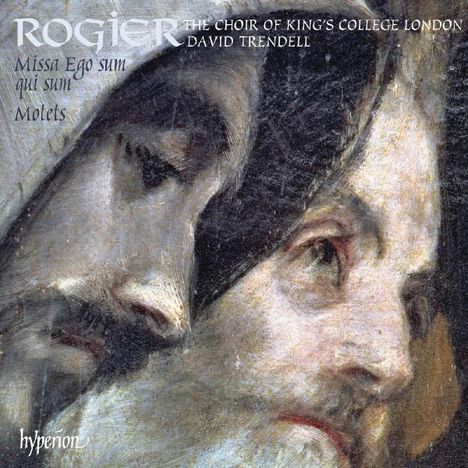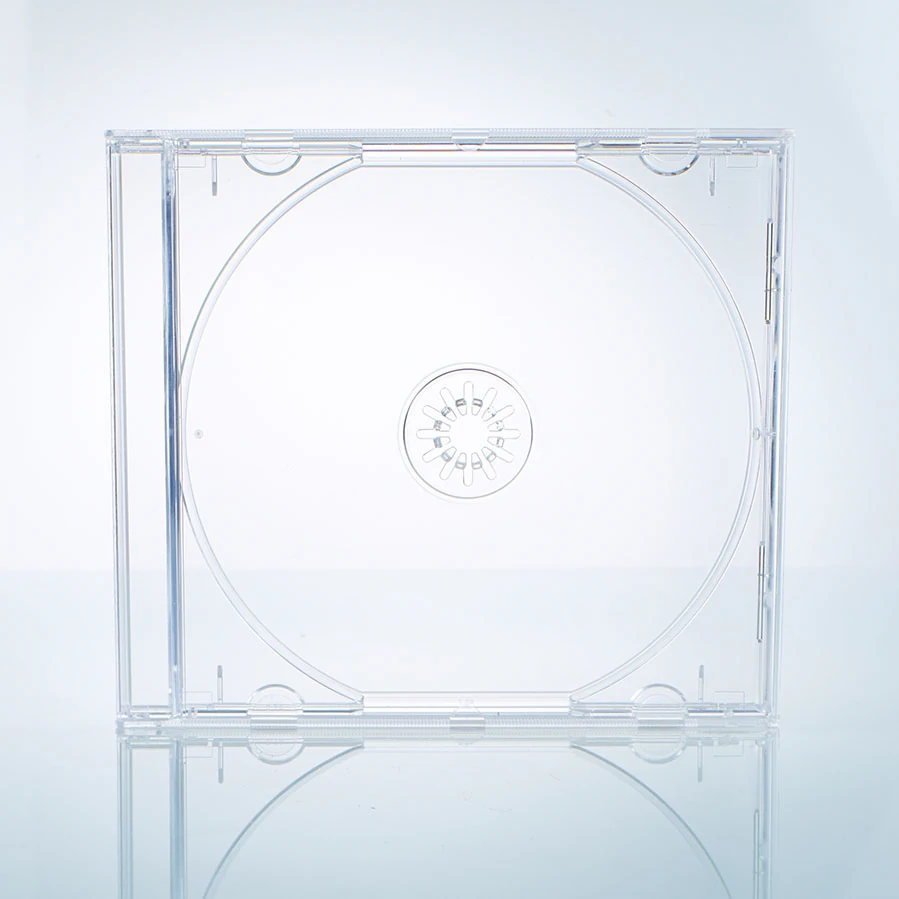Philippe Rogier: Missa "Ego sum qui sum" auf CD
Missa "Ego sum qui sum"
Herkömmliche CD, die mit allen CD-Playern und Computerlaufwerken, aber auch mit den meisten SACD- oder Multiplayern abspielbar ist.
+Videntes stellam; Cantantibus organis; Caligaverunt oculi mei; Locutus sum in lingua mea; Laboravi in genitu meo; Verbum caro
- Künstler:
- King's College Choir London, The English Cornett & Sackbut Ensemble, David Trendell
- Label:
- Hyperion
- Aufnahmejahr ca.:
- 2009
- Artikelnummer:
- 6537675
- UPC/EAN:
- 0034571178073
- Erscheinungstermin:
- 23.4.2010
Erfindungsreiche Musik
Philippe Rogier entstammte einer langen Reihe flämischer, am spanischen Hof wirkender Komponisten und traf 1572 in Madrid als einer der Chorknaben ein, die in den Niederlanden angeworben worden waren. Offenbar verbrachte er den gesamten Rest seines kurzen Lebens in Spanien. Rogiers Missa Ego sum qui sum ist eine Parodiemesse auf Grundlage einer Ostermotette von Nicolas Gombert, einem seiner Vorgänger am Hof in Spanien. Diese erfindungsreiche Musik zählt zweifellos zu den besten Vertonungen der gewöhnlichen Messe des späten 16. Jahrhunderts.
Product-Information:
Although well known and highly regarded in his lifetime and in the years following his death in 1596, the music of Philippe Rogier is largely known (especially to English audiences) through one motet alone, Laboravi in gemitu meo. But there is much to explore in this genuinely underrated composer. Philippe Rogier was one of a long line of Flemish composers who worked at the Spanish court. The high regard that the musically astute Philip II held for Rogier was not misplaced, because he is one of the most fascinating and rewarding composers of the late sixteenth century: extraordinarily versatile, capable of plumbing the emotional depths in his penitential works (of which there are many) as well as exalting the heights in his festive music.
The main work on this disc includes the parody mass Missa Ego sum qui sum, based on a motet by Gombert. It must rank as one of the finest settings of the Mass ordinary of the late sixteenth century, dazzling in its invention and sheer beauty. Gombert had been one of the most influential composers of the post-Josquin period, developing a style of composition based on continuous imitation and almost relentless expressivity with an extraordinarily high level of dissonance. Rogier’s Mass seems to be a tribute to this style.
Two twelve-part accompanied motets are recorded here, pointing to a well-developed polychoral tradition at the Spanish court. The remaining motets on this recording represent different facets of the composer: desperate cries in the pentitential works and sheer exuberance in Cantantibus organis, a motet in honour of St Cecilia.
The much admired choir of King’s College London and their director David Trendell appear in their Hyperion debut.
Disk 1 von 1 (CD)
-
1 Videntes stellam (Motette)
-
2 Cantantibus organis (Motette)
Missa Ego sum qui sum
-
3 Nr. 1 Kyrie
-
4 Nr. 2 Gloria
-
5 Caligaverunt oculi mei (Motette)
-
6 Nr. 3 Credo
-
7 Locutus sum in lingua mea (Motette)
-
8 Nr. 4 Sanctus
-
9 Nr. 5 Benedictus
-
10 Laboravi in gemitu meo (Motette)
-
11 Nr. 6 Agnus Dei
-
12 Verbum caro (Motette)
-
13 Verbum caro
Mehr von Philippe Rogier
-
Philippe RogierMissa Philippus Secundus Rex HispaniaeSuper Audio CDAktueller Preis: EUR 19,99
-
Philippe RogierMissa Domine Dominus noster2 CDsAktueller Preis: EUR 19,99
-
Gery de GhersemMissa "Ave Virgo Sanctissima"CDAktueller Preis: EUR 19,99
-
Santiago a cappella - Polyphony from Spain's Golden AgeCDAktueller Preis: EUR 19,99







